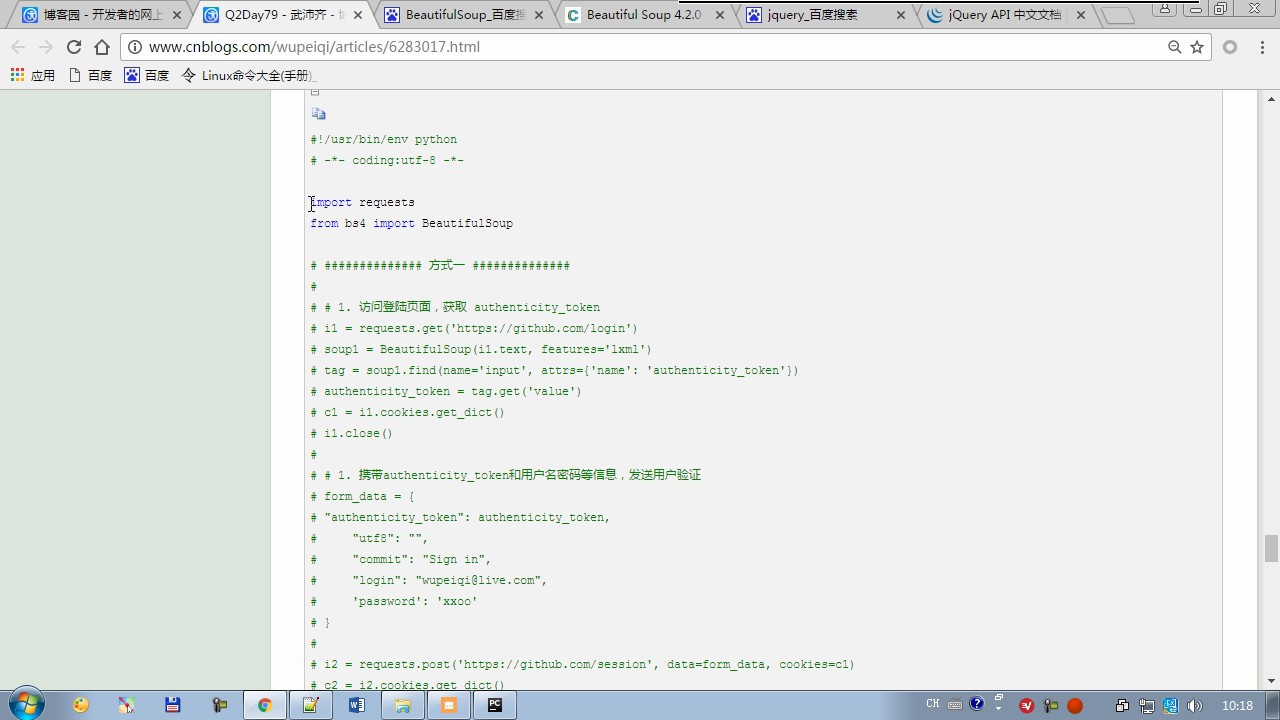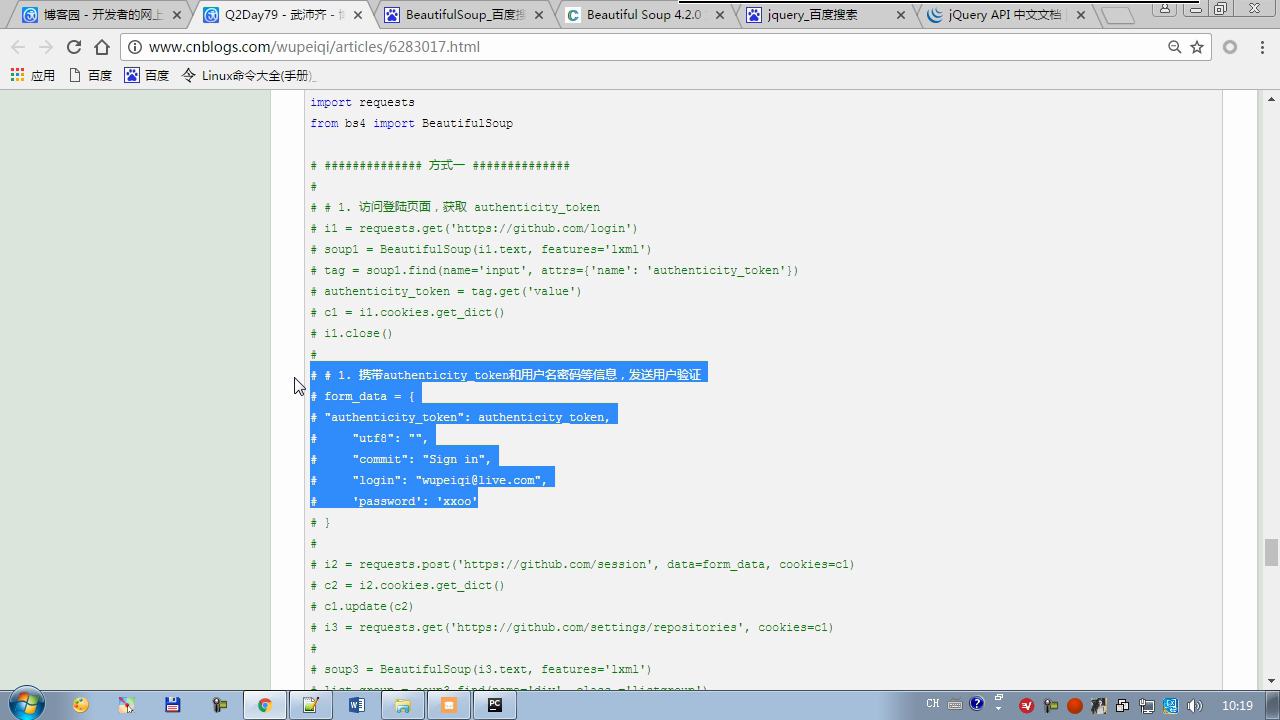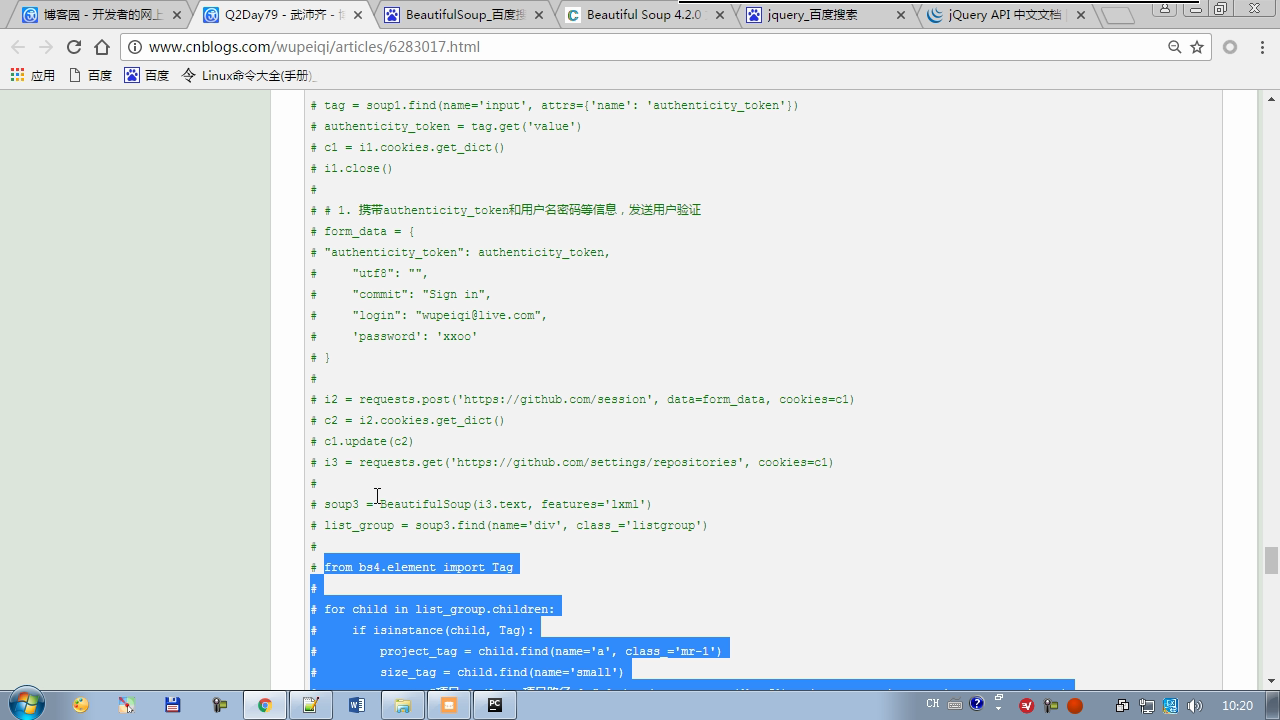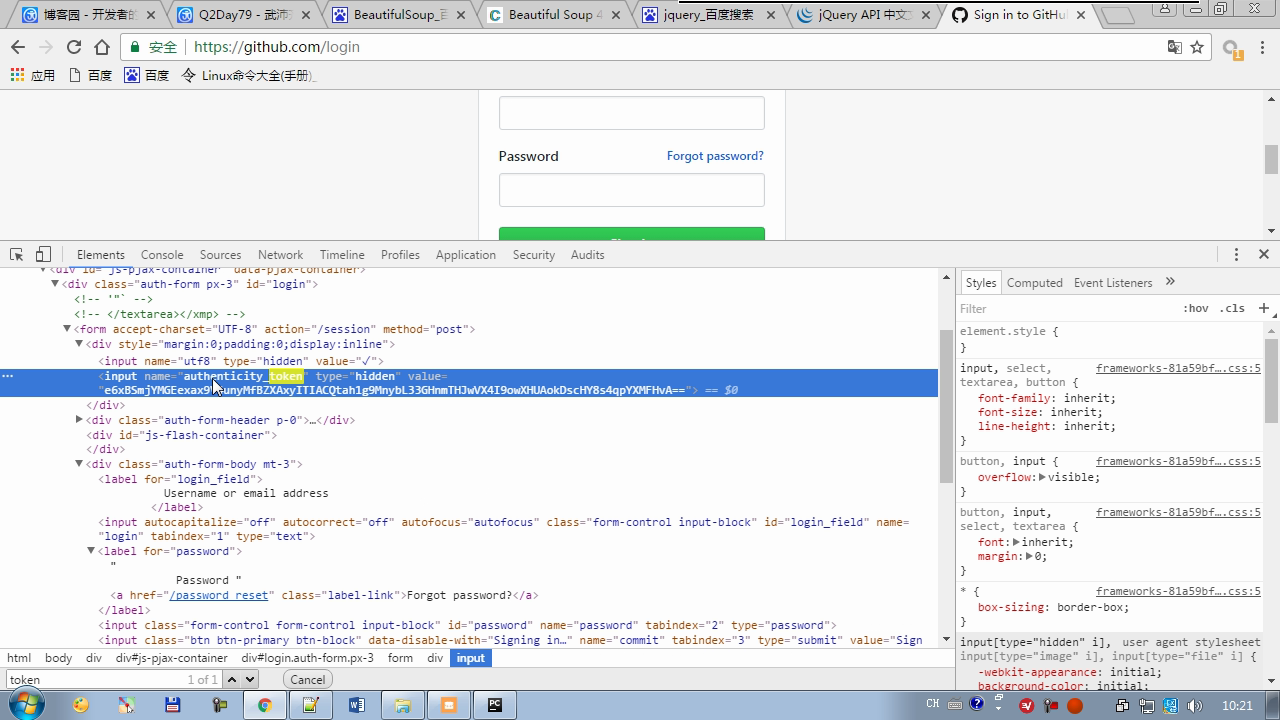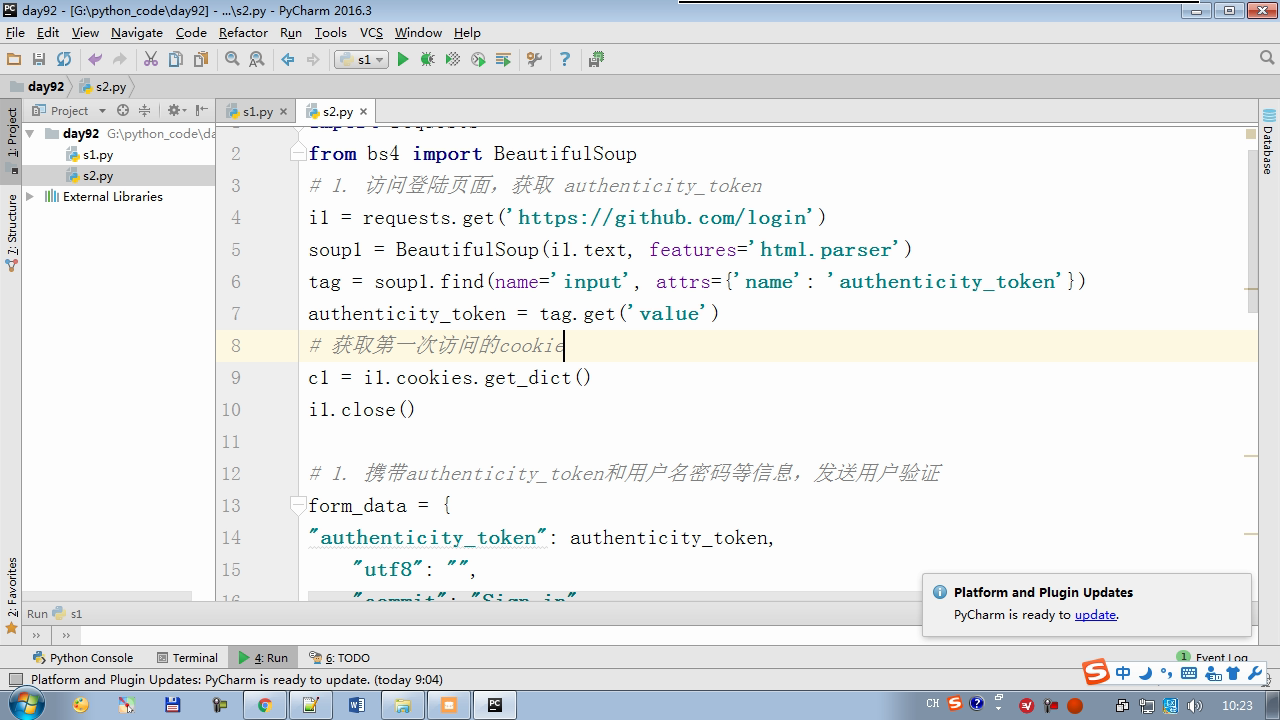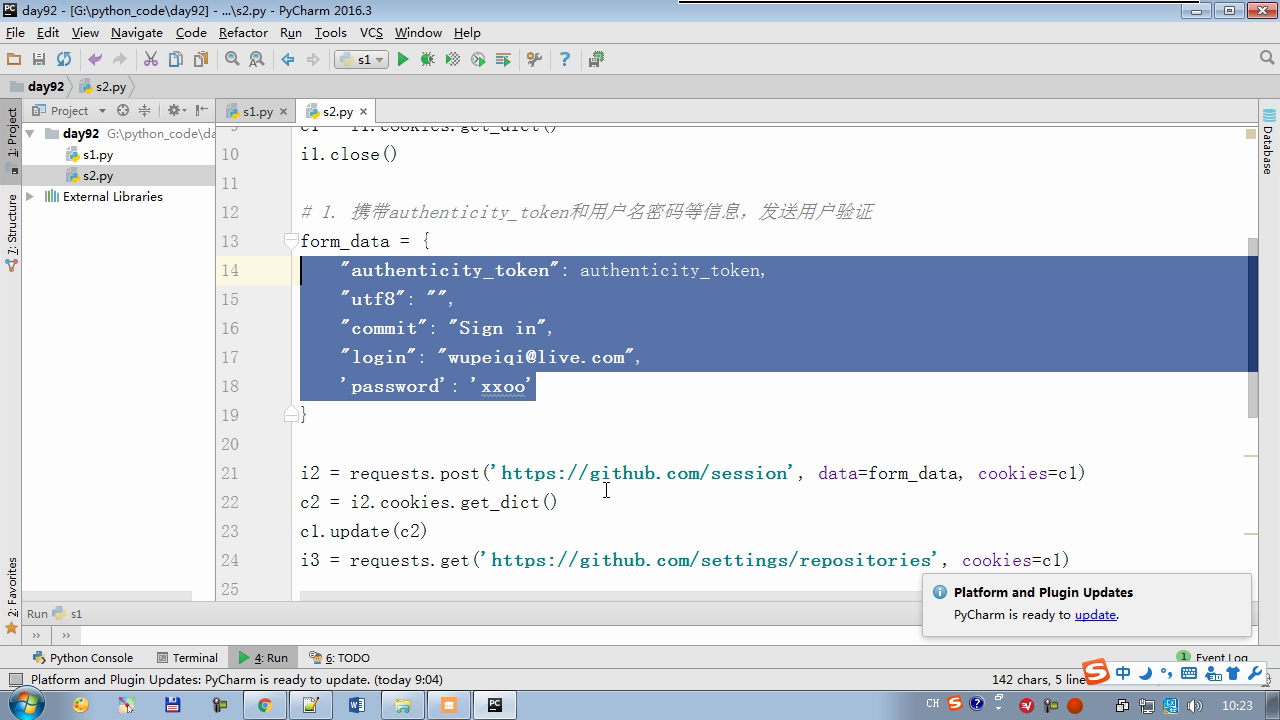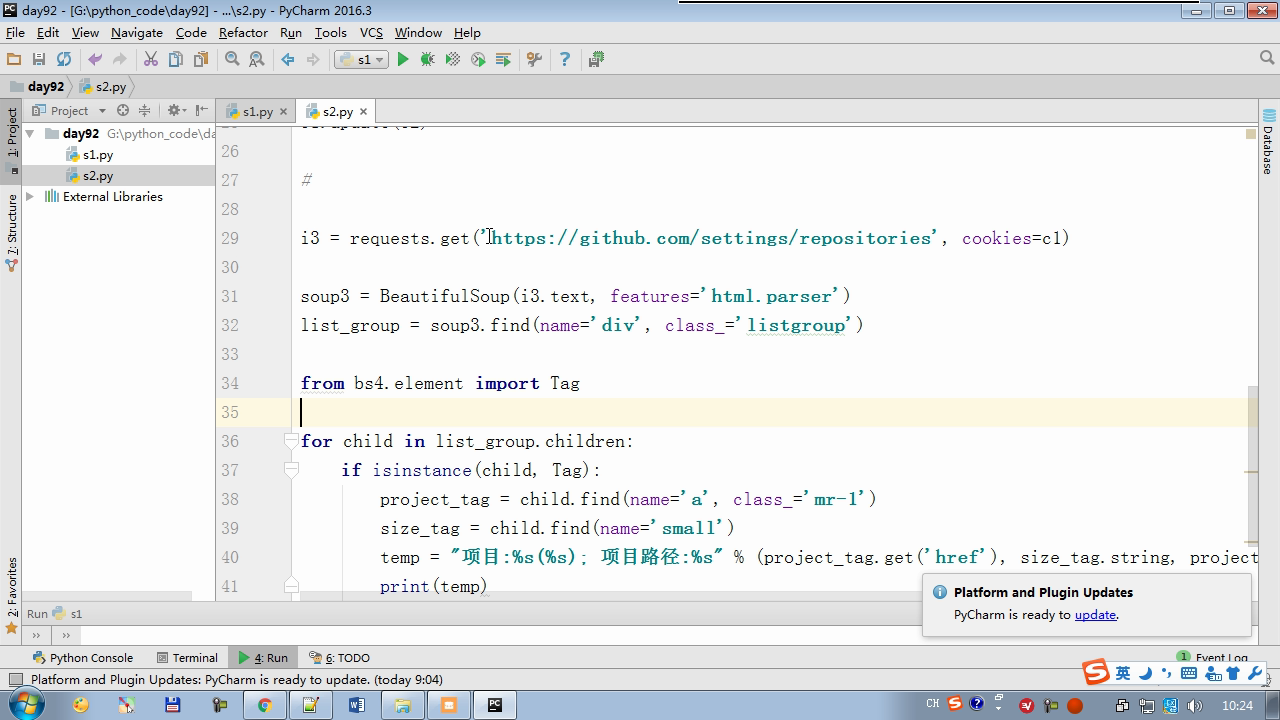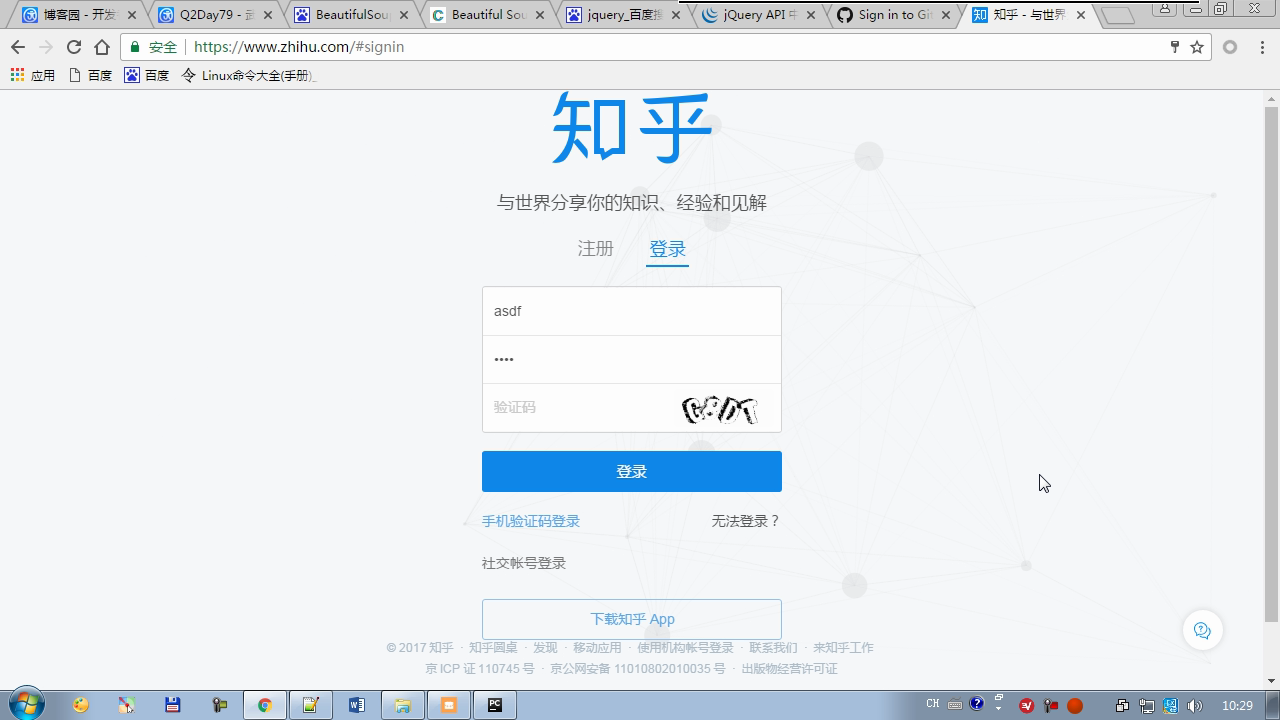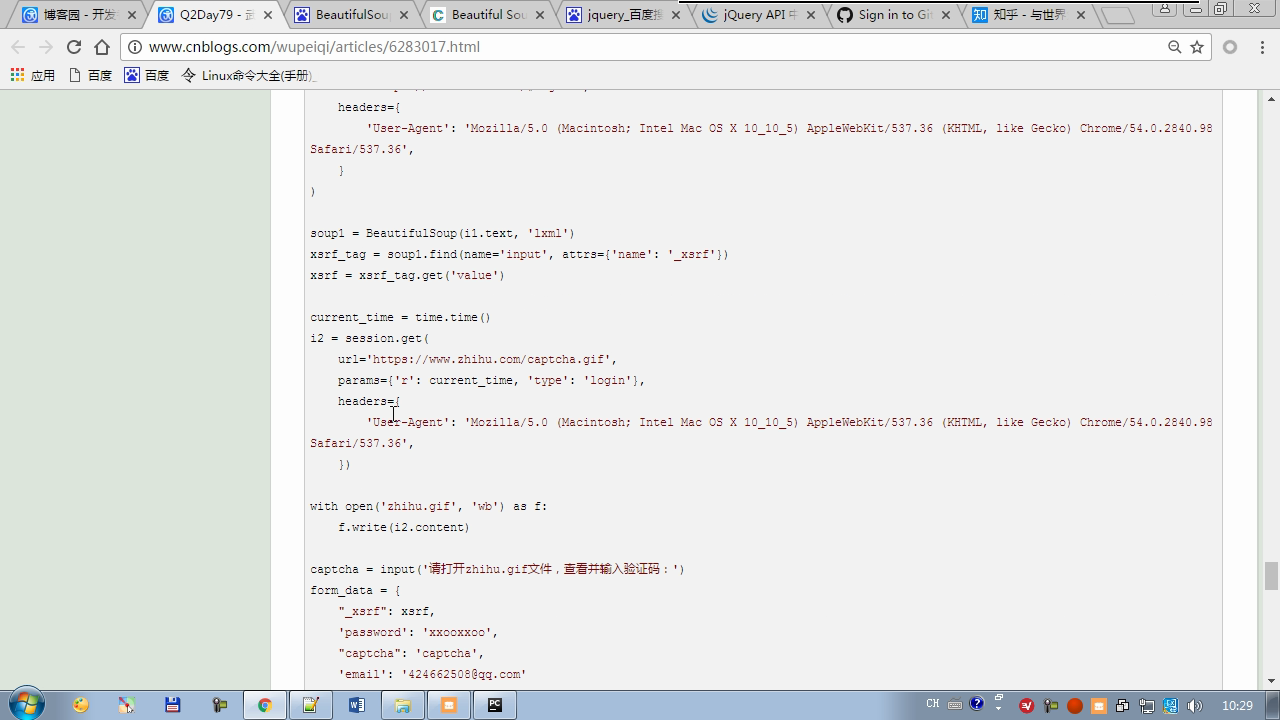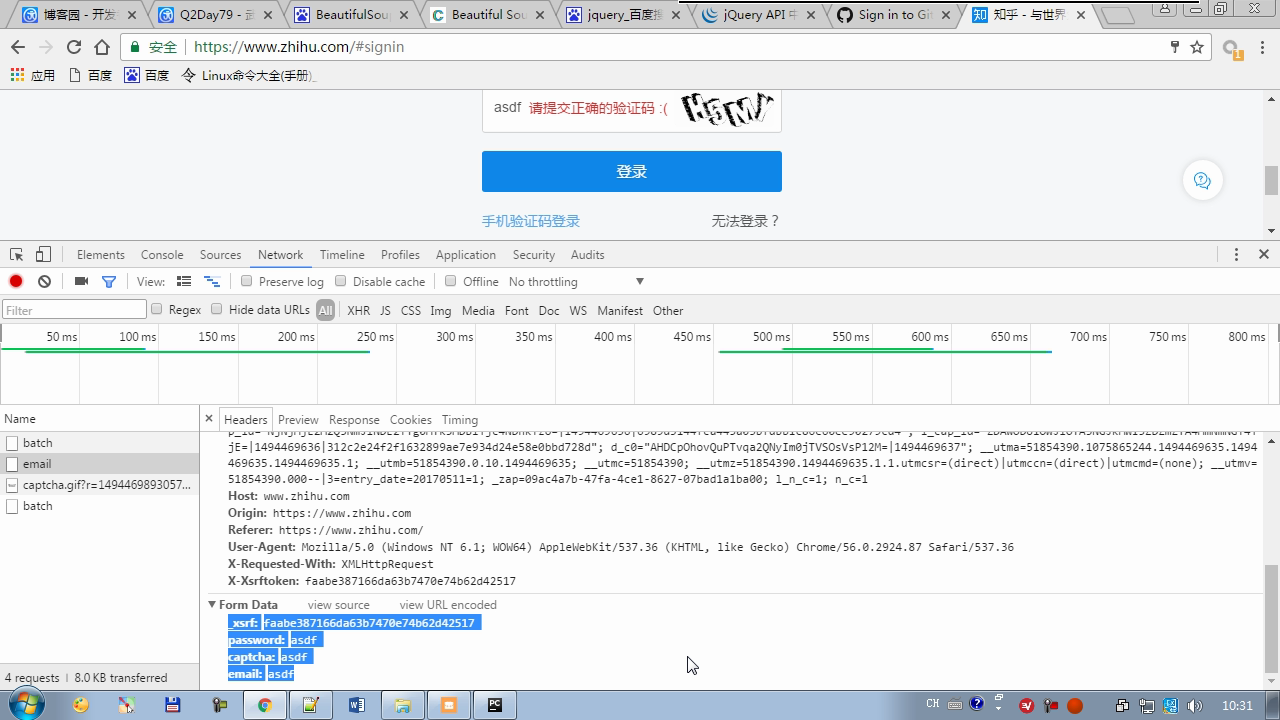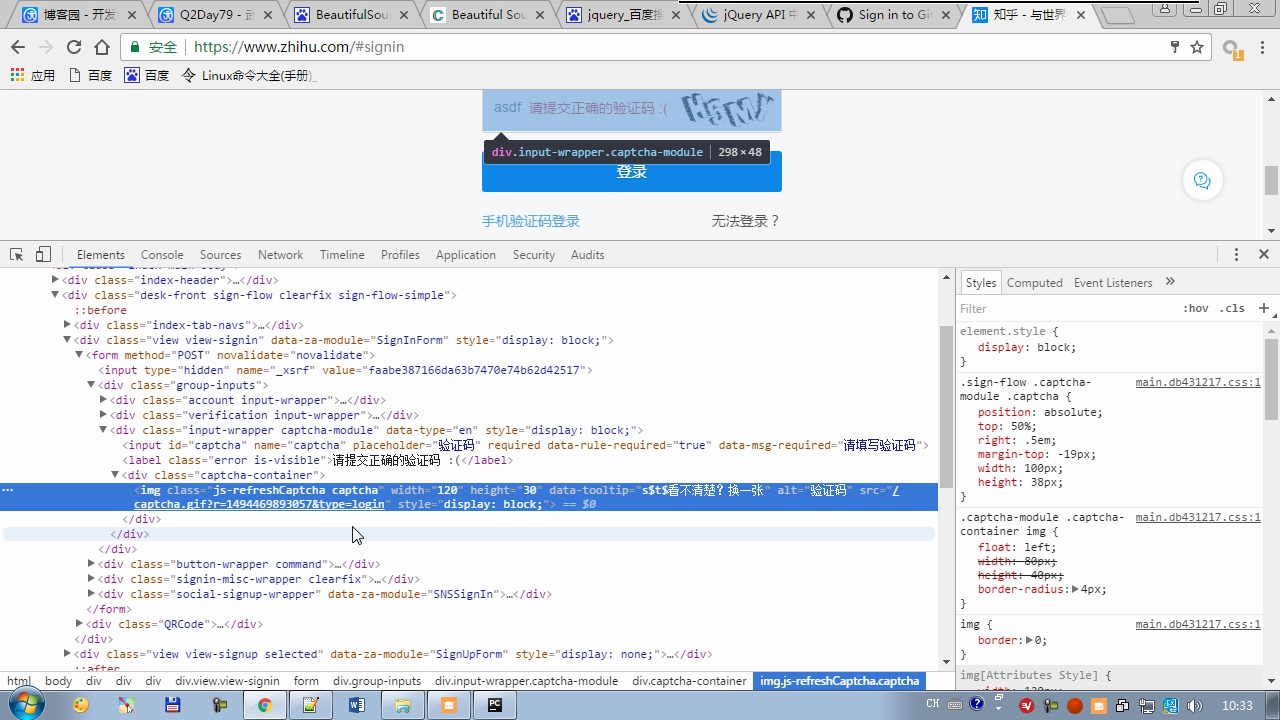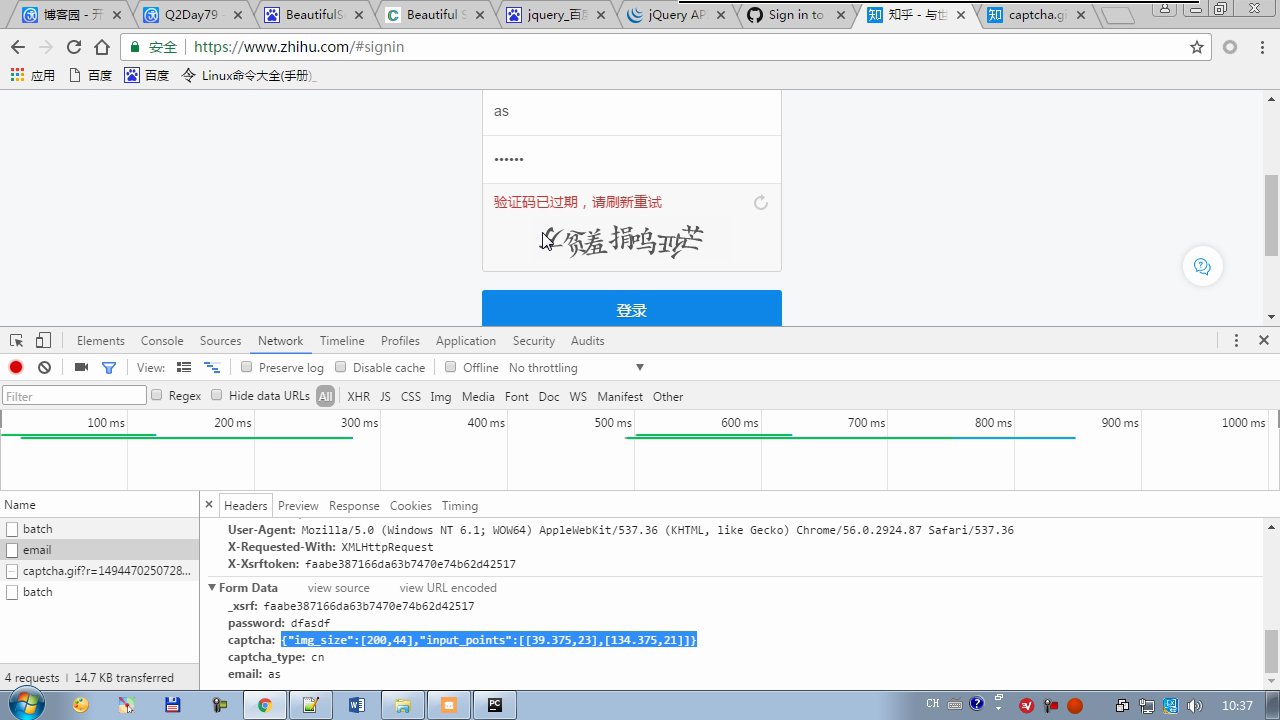
import requests from bs4 import BeautifulSoup # 1. 访问登陆页面,获取 authenticity_token i1 = requests.get('https://github.com/login') soup1 = BeautifulSoup(i1.text, features='html.parser') tag = soup1.find(name='input', attrs={'name': 'authenticity_token'}) authenticity_token = tag.get('value') # 获取第一次访问的cookie c1 = i1.cookies.get_dict() i1.close() # 1. 携带authenticity_token和用户名密码等信息,发送用户验证 form_data = { "authenticity_token": authenticity_token, "utf8": "", "commit": "Sign in", "login": "[email protected]", 'password': 'xxoo' } i2 = requests.post('https://github.com/session', data=form_data, cookies=c1) # 获取第二次的cookie c2 = i2.cookies.get_dict() # 获取第二次的cookie + 获取第二次的cookie c1.update(c2) # i3 = requests.get('https://github.com/settings/repositories', cookies=c1) soup3 = BeautifulSoup(i3.text, features='html.parser') list_group = soup3.find(name='div', class_='listgroup') from bs4.element import Tag for child in list_group.children: if isinstance(child, Tag): project_tag = child.find(name='a', class_='mr-1') size_tag = child.find(name='small') temp = "项目:%s(%s); 项目路径:%s" % (project_tag.get('href'), size_tag.string, project_tag.string, ) print(temp)
